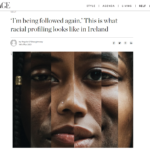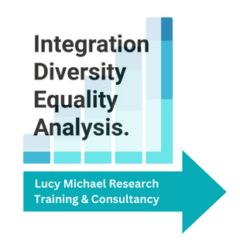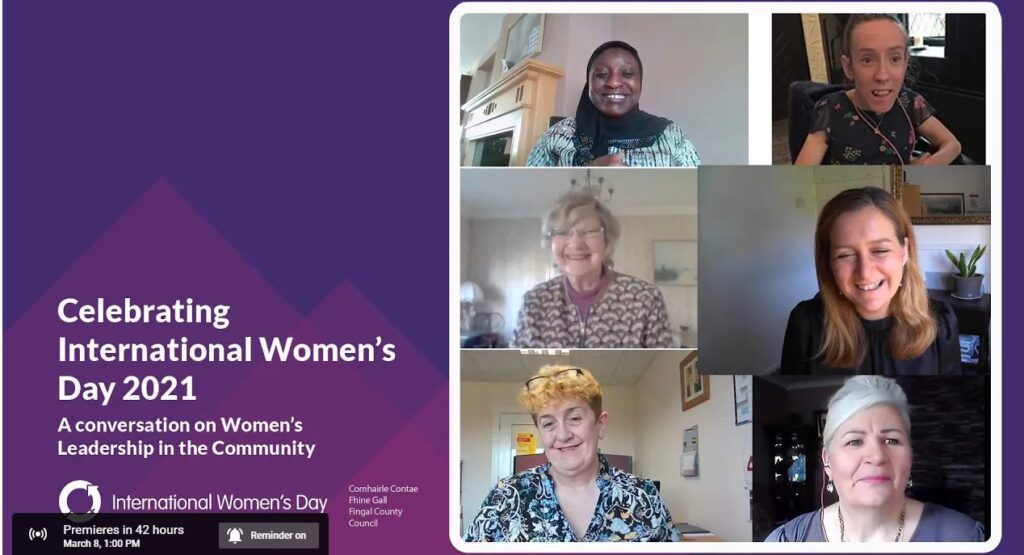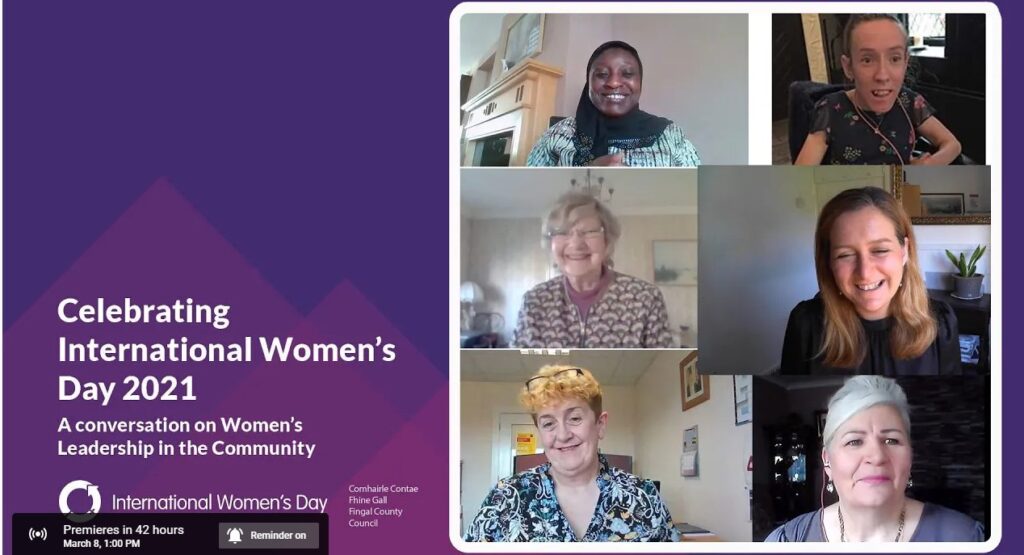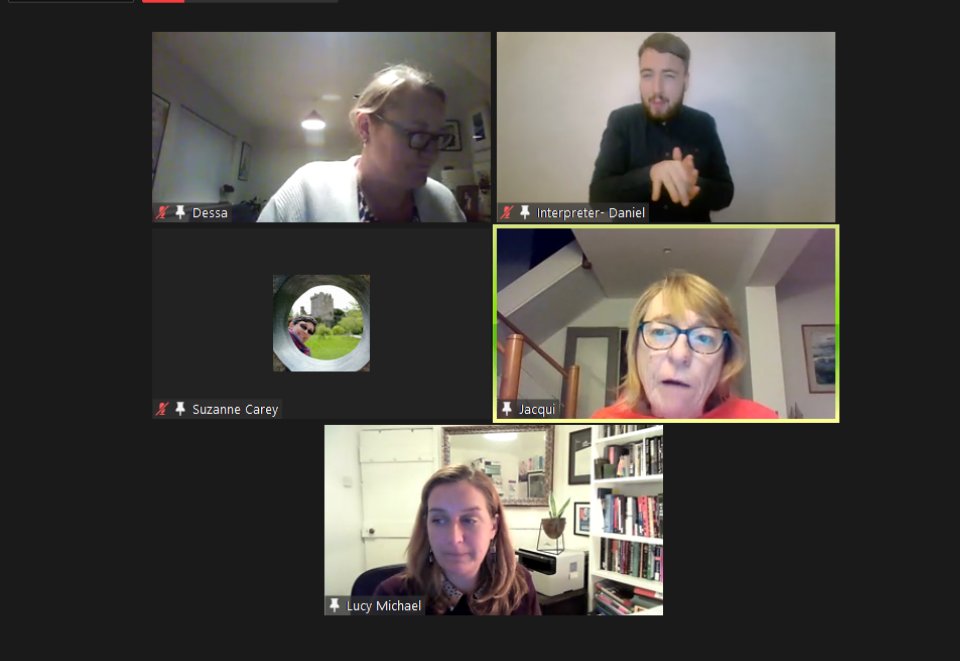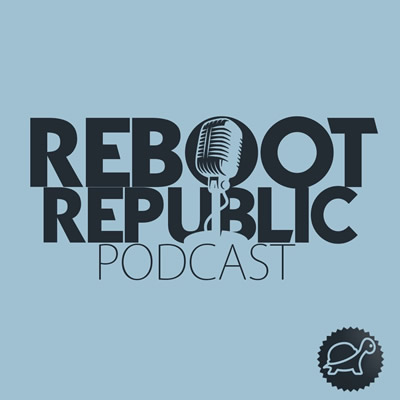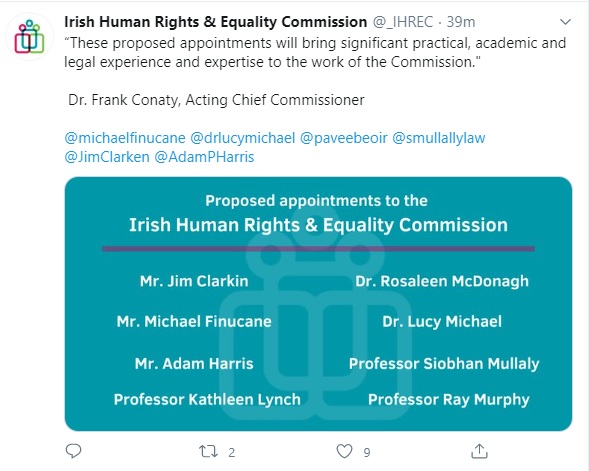I worry that the subject of much Irish media discussion of Black Lives Matter in Ireland, in reference to experiences of racism here, has been described as ‘casual racism’ (e.g. @rteliveline). ‘Casual’ racism sounds not that bad to a person who has not experienced racism, when in fact it is hugely damaging to people to experience it every single day of their lives.
If you’ve experienced everyday racism, you’ll know that it can change the things you do everyday, how you get to school/work, where you shop, who you see, how you dress, how you speak. For kids AND adults, it can be deeply traumatic.
Racism may be ‘everyday’, and it may not always involved physical violence, but the pain of these repeated experiences have been shown by science to be equivalent to physical injuries. That’s why they are so important to the people who experience them regularly.
Read more about the science of pain and racism here https://theconversation.com/does-racism-make-us-sick-63641
The produced tone of this media conversation as ‘casual racism’ is also dangerous because it denies the violence that goes on here in Ireland experienced by people too scared to describe it to journalists, too afraid to go to protests.
Working with the Irish Network Against Racism on the iReport.ie racist incident reporting system, I know firsthand how many people are afraid to tell their stories without anonymity. Those stories are told in the reports we publish regularly at https://inar.ie/ireport-reports-of-racism-in-ireland/
The violence that we report included 50 serious physical assaults last year, and that’s just the ones that were reported to iReport.ie in 2019. As well as that, there were sexual assaults, incidents of arson, threat to life, theft and extensive discrimination.
A high proportion of violence, as well as discrimination, is perpetrated by staff in public authorities including schools, councils and An Garda Siochana. Racial profiling and violence by Gardai are amongst the issues we have raised with the Policing Authority and with the Commission on the Future of Policing in Ireland.
And that’s before we get to the failures to protect victims of hate crime. Failures to address hate crime meant that the deaths of teenager Toyosi Shittabey and taxi-driver Moses Ebohon Ikpefua have not met justice.
Other forms of violence and neglect that result in death are found in institutions that particularly affect migrants, including Direct Provision. Lack of care by the Irish state means the causes of a third of deaths in Direct Provision are not known at all, because no investigations are carried out. The @DeptJusticeIRL do not ask. irr.org.uk/news/deaths-in…
We know very few of the names of people who have died in Direct Provision, but those we do know about reinforce everything we know about this system and how it kills its residents.Emmanuel Marcel Landa, a Congolese former diplomat, died in Direct Provision of heart problems after a heart attack during deportation. He had been in DP for 7 years. #
Tahir Mahmood died, aged 48, leaving behind a wife and 2 kids in Direct Provision. He was known to need a diet adapted for a medical condition, and was not given it. He had been refused help to get appropriate access to hospital repeatedly during his time in DP.
In 2016, a Korean woman took her own life in Direct Provision leaving behind a 5 year old son, believing he would be better off without her. We don’t know her name.
Sylva Tukula, a transgender woman forced to live in a male-only Direct Provision centre, died and was buried without her friends being notified about the funeral.
There are no names available for most of the people who have died in Direct Provision. We do not know how many of them died. We do know that many of the medical causes are likely to be directly related to the level of care they received in Direct Provision.
Many of the protests this week referenced the American cases, but many Irish people still don’t know the names of the deceased Toyosi Shittabey, Moses Ebohon Ikpefua, Emanuel Marcel Landa, Tahir Mahmood or Sylva Tutula.
But as well as the deceased we know of, there are thousands of victims of racist violence in Ireland who have no justice for what they experience because of ineffective policing of hate crime, fear of retaliation, and inadequate supports for victims.
It’s not good enough to only talk about Black Lives in the USA without educating ourselves on what is happening here. Below are a few links if you’d like to learn more about the brutality of racism, including racist policing, in Ireland and across Europe.
Here’s the @INARIreland submission to the Commission on the Future of Policing which shows why hate crimes don’t get justice here in Ireland. inar.ie/wp-content/upl…
Here’s a report from @HHRGatUL on what happens to hate crimes if they get reported to the Gardai iccl.ie/wp-content/upl…
Here’s the @FacingFactsEU report on Ireland’s failure to address hate crime facingfacts.eu/final-ireland-…
Here’s the Irish civil society report to the @UN Committee on Racism which details racial profiling and its effects inar.ie/wp-content/upl…
Here’s a report from @ENAREurope that details institutional racism in the criminal justice system in Ireland enar-eu.org/IMG/pdf/shadow…
